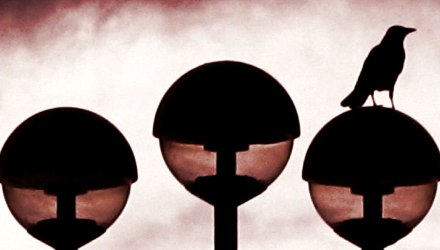I’ve been submitting a lot more this year, which inevitably means handling an increased number of rejections. Rejection is never fun, but it’s part and parcel of writing life. There was a time, back in the dim and distant neon glow of the past, when I believed my first story sale would be some kind of watershed. It would mean I’d learned how to write and everything flowing from my pen from that moment on would be finest prose, to be snapped up by eager publishers. I would dance around in an ecstatic haze surrounded by fluffy unicorns, and I’d fart fine fiction materialising in rainbow ink to be formatted by a team of highly trained aye-ayes.
Needless to say, it doesn’t quite work like that.
I started submitting in 2010, relatively late in life for someone who turns as many trees into words as I do. That year I submitted one piece as a favour to a friend. In 2011 I submitted a second on a whim. Both were accepted. I submitted three in 2012 (three personal rejections), and so far this year I have submitted eight pieces with one acceptance and two personal rejections. This is nothing like a high submissions rate. I am aiming for eight or more submissions in a month, but it’s going to take me a while to get there.
This year has been a learning curve in all sorts of ways. I’ve learned the value of good crit — and by that I mean intelligent, insightful and constructive crit. I’ve learned crit partners who will take time to analyse my work and subject it to scrutiny, and who are prepared to be hard but fair, are a precious commodity to be treasured. I’ve also learned the real prize in the process of preparing a story for submission to market is the creation of a good story. The story is the commodity, in the same way a cut diamond is the prize, rather than the eventual sum paid for that diamond (with the difference that you sell rights to your story, not the story itself).
A while ago I did an interview for the Literature Show. One of the questions we didn’t have time to cover was whether I felt doing triathlon had any influence on my writing. I’d have said it most definitely does. I race for one main reason: if I didn’t have the races as targets, I wouldn’t train. Competing is my way of injecting motivation to keep fit. If you race, you make time to train. You go out in the rain. You invest time and effort for a prize that is nothing to do with standing on the podium — the podium, particularly when elite athletes are involved, is the preserve of the genetically gifted and those whose job it is to compete in triathlons. Those of us who make up the ranks of the age groupers do it for the achievement, for the fun, and for the goal of being fit enough to compete.
Submitting to paying markets is similar. Without the goal of making it past the guardians of the slush pile and giving sufficient enjoyment to an editor that he or she is prepared to pay for the rights, I would not put the same effort into my work. I spent years writing without that goal in mind, and the difference between what I write now and what I wrote during that time is one of craft. It’s the precision of comma use, the lack of extraneous thats, the avoidance of unnecessary qualifiers and the focus on making each sentence carry the story forward. I’m not saying my work is perfect, by any stretch of the imagination, but it’s miles better than it was.
Putting in the runs, the swim sessions and the bike training, turning up for a race, racking my bike, prepping my transition area, putting vaseline in my shoes, and remembering to put my helmet on before touching my bike will not guarantee me a win. It does mean I’m fit enough to compete. The drafting, re-drafting, editing, crits, re-editing and submission will not guarantee a story sale. They do mean a story I am happy to submit, and there are always other markets.


I too competed in triathlons ,marathons and the like albeit many moons ago and I can appreciate the analogy between training for such sporting events and writing!. So effectively the story has to be fit enough to stay the distance with a publisher , ‘unfit’ stories fall by the wayside and don’t finish the race, I like this !
For me, it’s also the case that the more work I put in, the less disappointed I feel upon rejection. If I’m happy with the story, and feel it’s as good as it can be, then a rejection is less likely to reflect the quality of the writing. If I put in good quality training for a race and someone is faster than me, well that’s just racing. There is always someone faster than me and often they attend the same races. I did the best I could and that’s the important thing. I could get a PB and still not make the top ten, just as I can put in the best story I’ve ever written and the editor has already bought something with a similar theme, or doesn’t have the space for it, or is looking for something slightly different.
If I don’t do the training and perform badly, that’s my fault for not working hard enough. Similarly, if I submit a story that has mistakes, or isn’t properly developed and doesn’t have strong characters and a consistent drive, then that’s my fault for not putting in the necessary work.